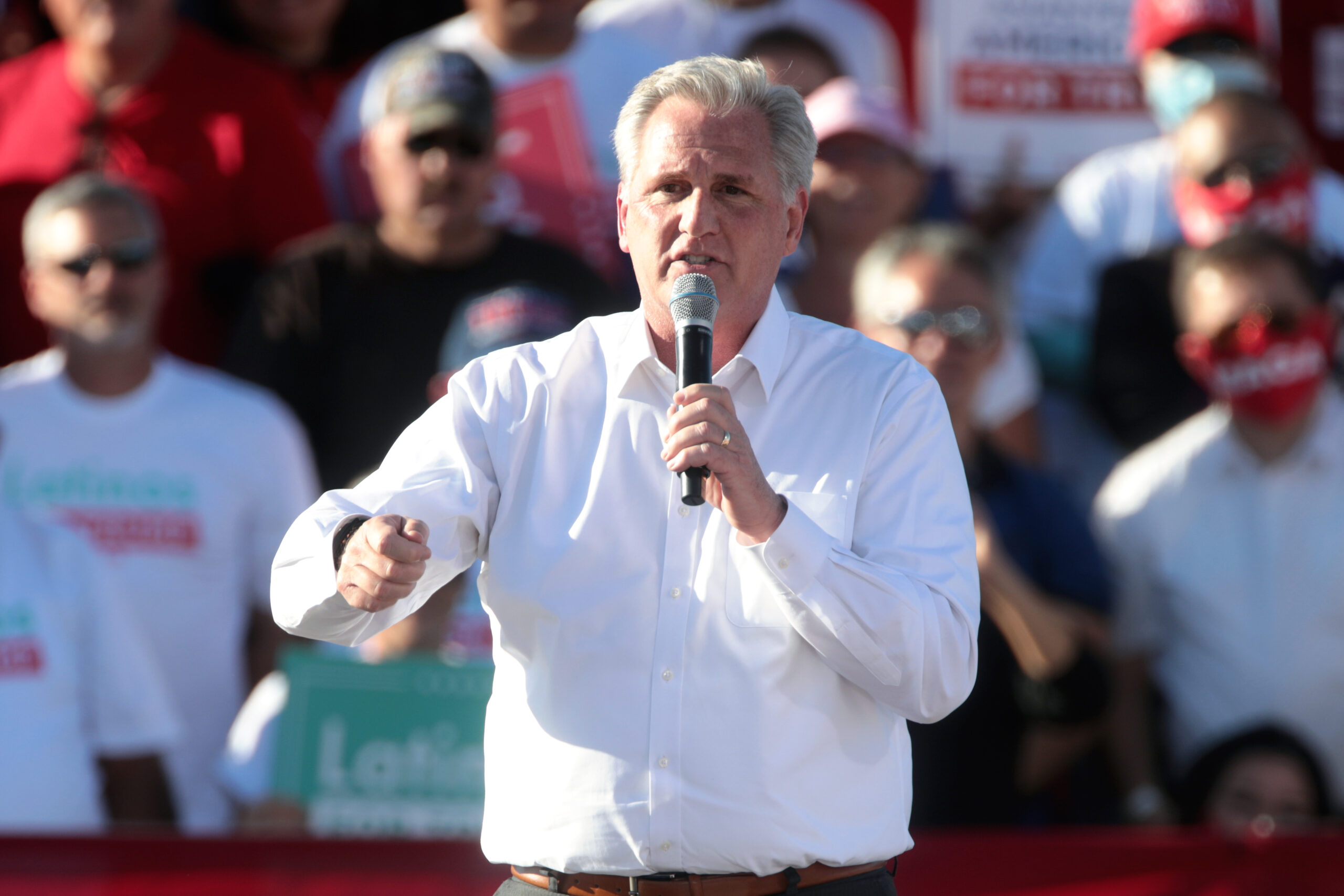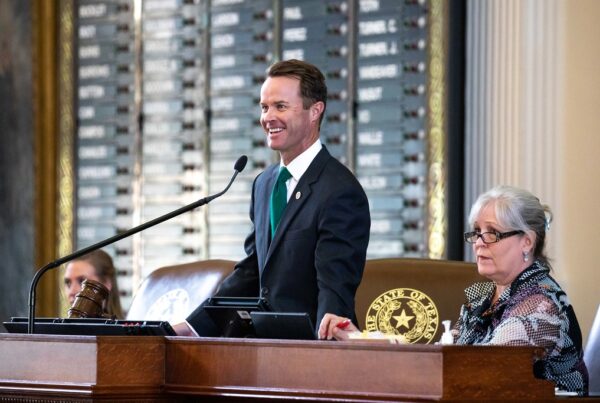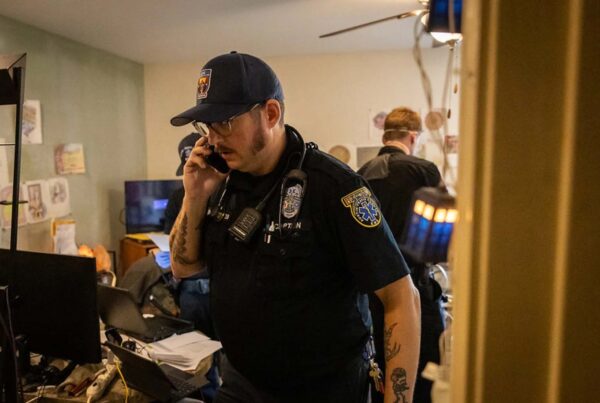An intra party battle between the most conservative wing of the House GOP and the speaker of the House, Kevin McCarthy, has reached a fever pitch in the wake of a narrowly-missed government shutdown.
McCarthy’s never exactly had the tightest grip on his post. Back in January, it took the California Republican 15 ballots to win the speakership in the first place.
Mark Jones, a professor of political science at Rice University and fellow at the school’s Baker Institute for Public Policy, joined Texas Standard to discuss this removal bid and where Texans stand on all this. Listen to the interview above or read the transcript below.
This transcript has been edited lightly for clarity:
Texas Standard: This push against Speaker McCarthy is being led by more conservative members of the party, like Matt Gaetz from Florida. He’s filed what he’s called a motion to vacate. Why is it so important for Gaetz and his wing to depose the speaker here?
Mark Jones: Well, they were enraged by the speaker’s reliance on Democratic support to avoid the shutdown over the weekend. And they’ve been a thorn in the speaker’s side ever since he was elected. And so that finally was the straw that broke the camel’s back.
Gates is now introducing the motion to vacate the speakership and set in motion a vote that will take place today to determine whether Kevin McCarthy survives or whether he is removed from office. And we have to go through the whole speaker vote again for someone else.
Are the Republicans supporting McCarthy going to need support from House Democrats? And what’s happening on that side?
Well, there’s a very narrow Republican majority in the House – 221 Republicans to 212 Democrats. Meaning if Gaetz and four or five, six of his colleagues decide to vote – essentially go against McCarthy, which appears likely – the only way McCarthy survives is either with Democrats not voting, essentially voting to table, or at least going present, saying they’re there, which would allow a fewer number of Republicans to effectively table the motion and allow McCarthy to survive. Or if it gets to the vacate vote, vote against the motion to vacate, so it would fail.
But McCarthy is going to need either indirect or direct Democratic support if he’s going to survive, most likely.
Well, now, what about the Texas congressional delegation? There’s a large bloc of the House Republican caucus. Any of them been outspoken one way or another when it comes to the speaker battle?
Well, there have been several critics of Speaker McCarthy. Chip Roy, from the San Antonio/Austin area, has been critical. Wesley Hunt from Houston has been critical. And Michael Cloud from Victoria has been critical.
Right now, I think the only two that there’s doubt about are Hunt and Cloud, where they may vote against the speaker. But right now most of the opposition is outside of Texas.
It’s really a small number. If you think about it, there are 221 Republicans. The number of hardcore McCarthy opponents is at most about a dozen to 15.
Well, clearly, Speaker McCarthy’s had a tough time consolidating power in the House there in D.C. Does anyone else have a chance to do better, though?
It’s tough. I mean, when you have a majority that’s so narrow, 221 seats with 218 being a majority, and you have a very far right, very difficult and obstructionist right wing whose support you need… and we’re in a hyperpartisan environment where Democrats tend to not support Republicans and vice versa, which makes it very different from the Texas House, where Speaker Dade Phelan can rely on Democratic support – that’s not the tradition, or at least currently in the U.S. House, meaning it’s going to be tough for whoever takes power.
Steve Scalise might be the next alternative, although I don’t know if he’ll do any better than McCarthy.
Well, you know, I think you anticipated what I was going to ask you next, because you see this cloud looming over the U.S. Capitol and looks an awful lot like the one looming over the Texas Capitol as we head to a special session. Are those false echoes?
Well, the big difference is that Texas Democrats are not as hyper partisan as Democrats in Washington and have a better working relationship with Speaker Phelan. So as long as Speaker Phelan can retain a decent amount of support among Republicans, say 20 or 30, he can rely on Democratic support to block any sort of far right move to remove him from the speakership.
So because Speaker Phelan is willing to work with Democrats like one of his predecessors, Joe Straus, worked with Democrats, he can rely on that goodwill and that strong working relationship to protect himself from the right wing of the party. Speaker Kevin McCarthy doesn’t have that ability.













